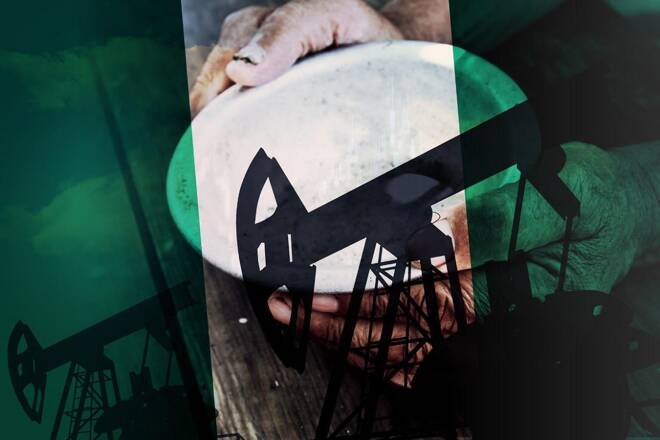Advertisement
Advertisement
Pirates of the Niger Delta – The Curse of the Black Gold
By:
Since massive oil reserves were discovered in Niger Delta in 1956, most Nigerians aren’t benefitting from the supposed oil wealth.
In modern English, when something/ someone “strikes oil”, success usually follows. Sadly, this is not the case for the west African nation of Nigeria. Since massive oil reserves were discovered in Niger Delta in 1956, most Nigerians aren’t benefitting from the supposed oil wealth. While Nigeria holds great potential in oil production, the current situation suggests much is needed to achieve that.
Limited production and investment
According to data from the OPEC website, Nigeria has 37 billion barrels of proven crude oil reserves – ranking second in Africa and tenth globally, and produces around 1.3 million barrels every day. However, the combined daily capacity of the four refineries in the country could only handle 486,000 barrels, as almost 1.6 million barrels of crude oil were exported.
In short, Nigeria has a limited refining capacity, and its oil is mostly export-oriented. When we compare the official oil production figures, it has actually gone down from 1.9 million (2016) to 1.3 million (2021), now at 1.15 million barrels per day (bpd).
The continuous decline prohibited Nigeria to meet OPEC’s assigned production quota of 1.77 million bpd, also explaining why it can’t take over Russia’s oil supply in the wake of the Russian invasion of Ukraine and the subsequent sanctions.
Over the years, the Nigerian government has called for foreign investments in order to develop its oil and gas industry. Although the Trans-Saharan gas pipeline plan is yet to be realized, the Dangote Refinery should be operational by the fourth quarter of 2022, it is said to hold a 650,000 daily capacity – which could significantly boost Nigeria’s production number.
Domestic strife
Corruption has been the root of Nigeria’s woes, its oil income is skimmed at every level by government officials and influential parties. Despite having Nigerian National Petroleum Corporation (NNPC) as the official regulator for the oil industry, NNPC also handles the oil income to be sent to the government. Combining the conflict of interest with a lack of transparency, NNPC has enabled billions of oil income to be lost to corruption, bringing deficit instead of revenue.
For another ironic twist, fuel shortage has plagued the oil-rich Nigeria in 2022 so far, the domestic refineries simply cannot meet people’s demands, most fuels were imported and supply shocks led to long lines of vehicles just to get their fuels tanks filled. Moreover, most Nigerian households still use kerosene to cook their food, adding yet another crucial daily product desperately needed but not available through official channels.
When the government failed to meet local demand, the black market emerges as the solution with bunkering (oil theft) becoming common practice. Illegal refineries – or artisanal refineries as locals would call them, siphons crude oil from pipelines, then process them with almost primitive equipment. Bunkering provides impoverished Nigerians with affordable fuel, cheap kerosene, and relatively lucrative job opportunities in an abysmal labor market.
On the other hand, bunkering could be (literally) the kiss of death for many Nigerians, artisanal refineries are notoriously dangerous, and lethal explosions have claimed at least hundreds of lives. Non-existent safety and waste discharge standards caused severe air and water pollution in the Niger delta – where bunkering activities take place. The soot that came from bunkering is known as “black snow“ among locals, both “black snow“ and tainted river water have caused a multitude of deadly illnesses for the unfortunate people living there.
The Nigerian government is trying (and failing) to eradicate bunkering, but after every raiding operation, artisanal refineries will simply resurface in another location, because they are just too easy to build, and those who were involved just don’t have viable alternatives to sustain their families. Reports have claimed bunkering drained at least 10% of Nigeria’s crude oil production, to a point some local activists suggested legalizing artisanal refineries and giving them proper training would be a more sensible answer.
Conclusion
There is no quick fix to Nigeria’s problems in the oil industry, the government needs to rid itself of corruption to ensure oil income is rightly delivered to the national treasury, bunkering could only be rightfully addressed by a healthy economy and proper regulations.
The current market barely counts on Nigeria to relieve oil and gas shortages, but once the mentioned issues are dealt with, and the proposed oil and gas facilities are effectively operational, we could expect Nigeria to be a prominent energy player in the near future. Check the latest oil price here.
About the Author
Lucia Hancontributor
Lucia has graduated from Lincoln University in 2018, then she became an equity research associate at Renner Capital Partners which is a long-short equity fund in Dallas.
Advertisement
